IPGLock
Follow these steps to configure OpenLM to monitor license usage and retrieve statistics from the IPGLock license manager.
Requirements
Before starting, make sure you have:
- OpenLM Server v2.x installed on a machine in your organization or an SLMC account
- OpenLM Broker v4.17 or higher installed on the same machine as the IPGLock license manager
Monitoring capabilities
The current monitoring capabilities for IPGLock through OpenLM Broker are:
| Feature | Resolution | License totals | License usage | Denials reporting | Borrowed license reporting | Expiration date reporting | Multiple server redundancy |
|---|---|---|---|---|---|---|---|
| Support | By second | ✔ | ✔ | ✔ | ❌ | ✔ | ❌ |
OpenLM Broker configuration
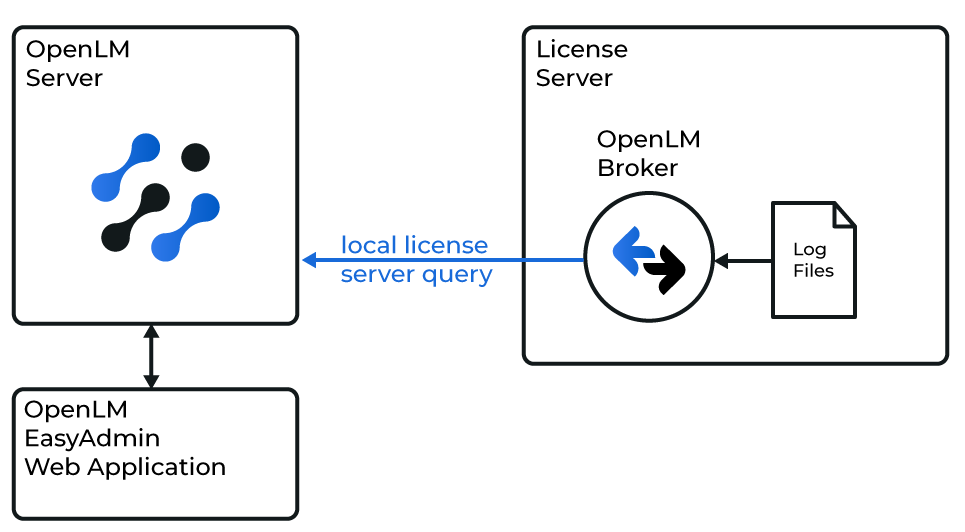
Diagram of how OpenLM interfaces with the IPGLock license manager
note
Install and configure OpenLM Broker before starting these steps.
Manual configuration (Broker desktop UI)
- Click Add Port.
- Enter the IPGLock server port number (default:
11010). - From License Manager Type, select IPGLock. Click Apply.
- In Commands, select Data Inquiry (IPGLock uses the Telnet protocol) and click Execute. Verify that the output is valid.
- Go to the Vendors node, enter IPGLock as the vendor name, and click Apply.
- Select the Log Files node and browse to the IPGLock log file location.
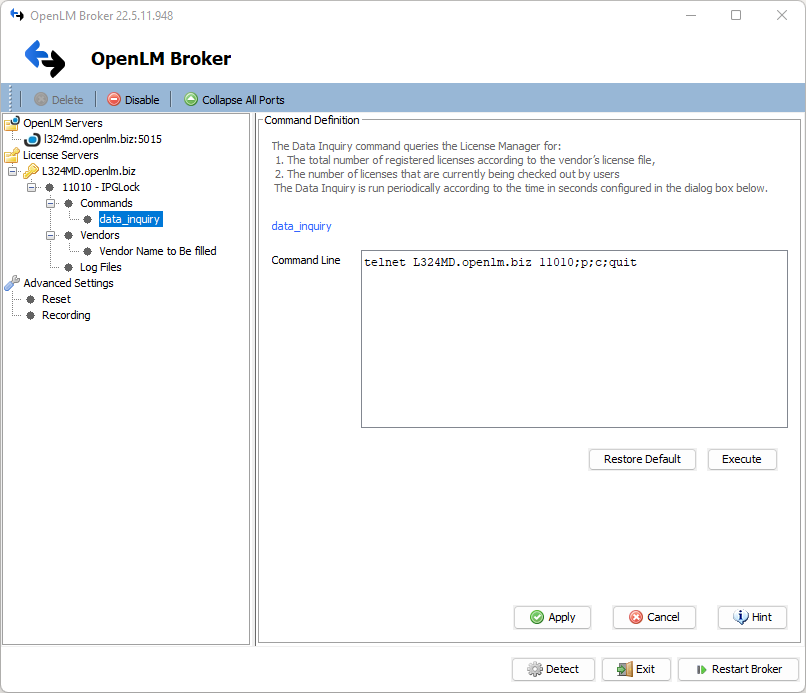
Manual configuration (Broker web UI)
- Open a browser and go to http://localhost:5090/.
- Go to License Managers → Add License Manager.
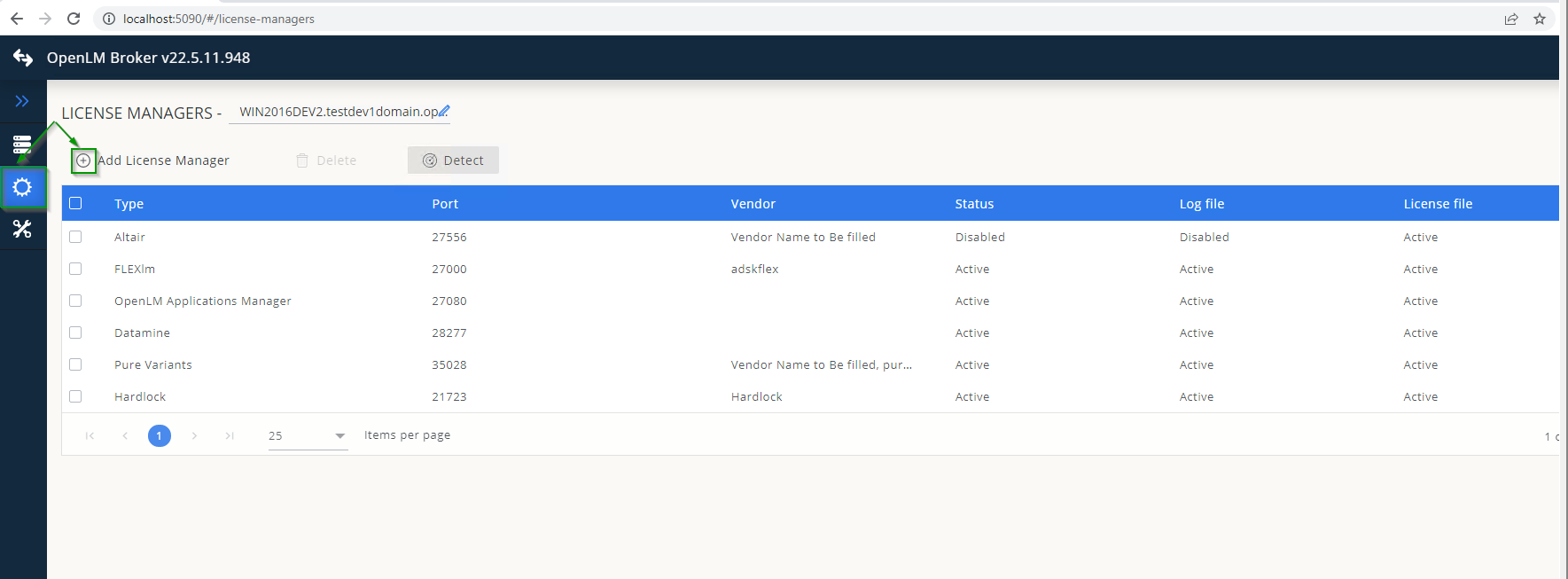
- Select IPGLock from the type dropdown, enter the port number, and click Add.
- In the Commands tab, confirm the Service Name is correct and click Execute to verify the Telnet command works.
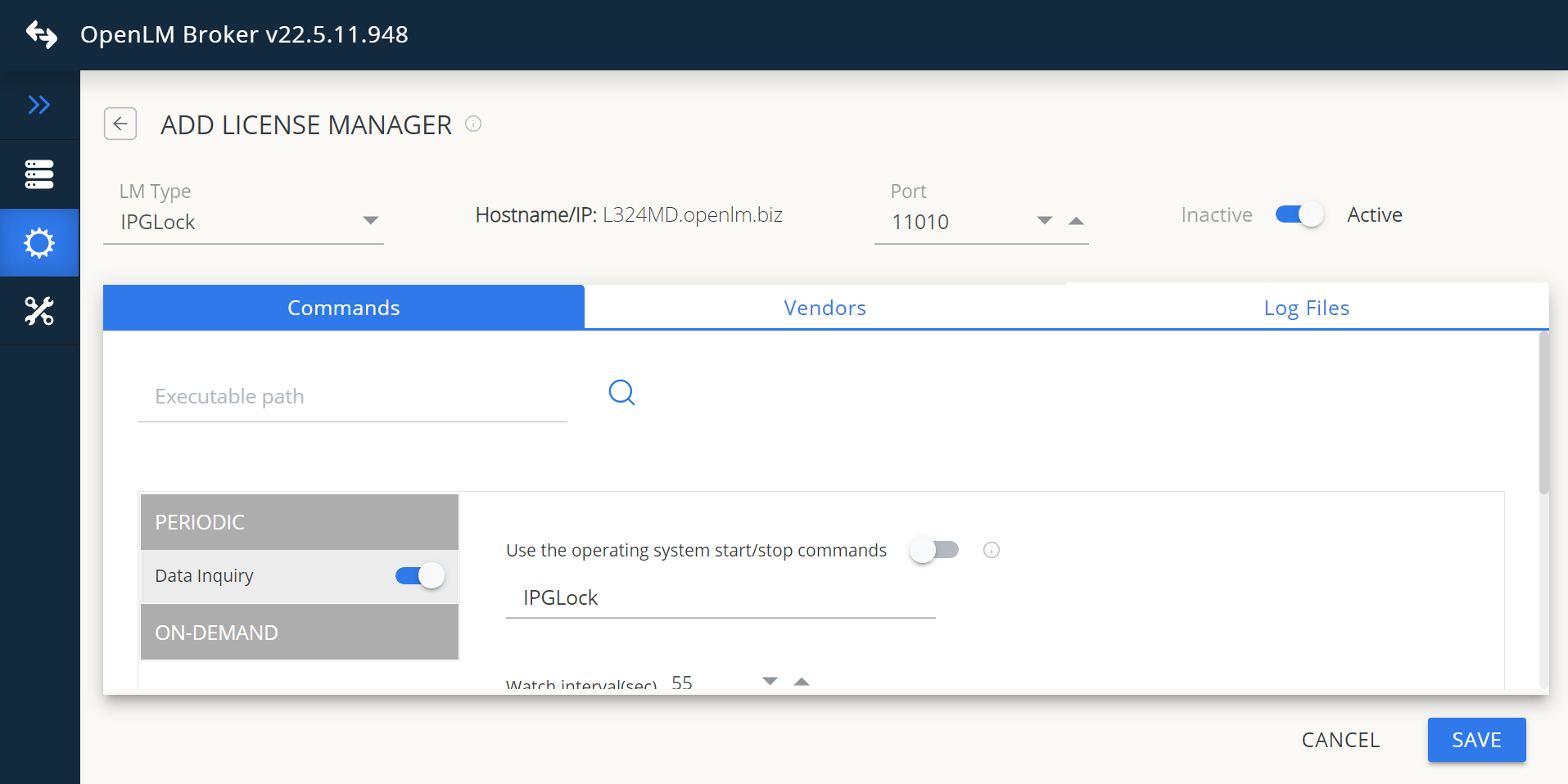
- Go to the Vendors tab → Add Vendor, enter IPGLock, and click Continue.
- Go to the Log Files tab, browse to the IPGLock log file, and click Continue.
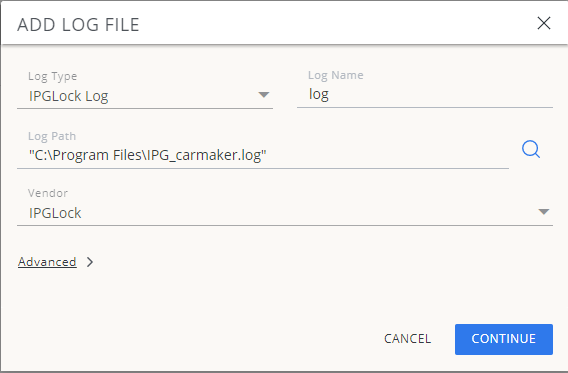
- Click Save.
OpenLM Server configuration
Automatic configuration via EasyAdmin
- Open EasyAdmin (Start → Widgets → License Manager - Servers).
- Click the Servers pending approval icon.
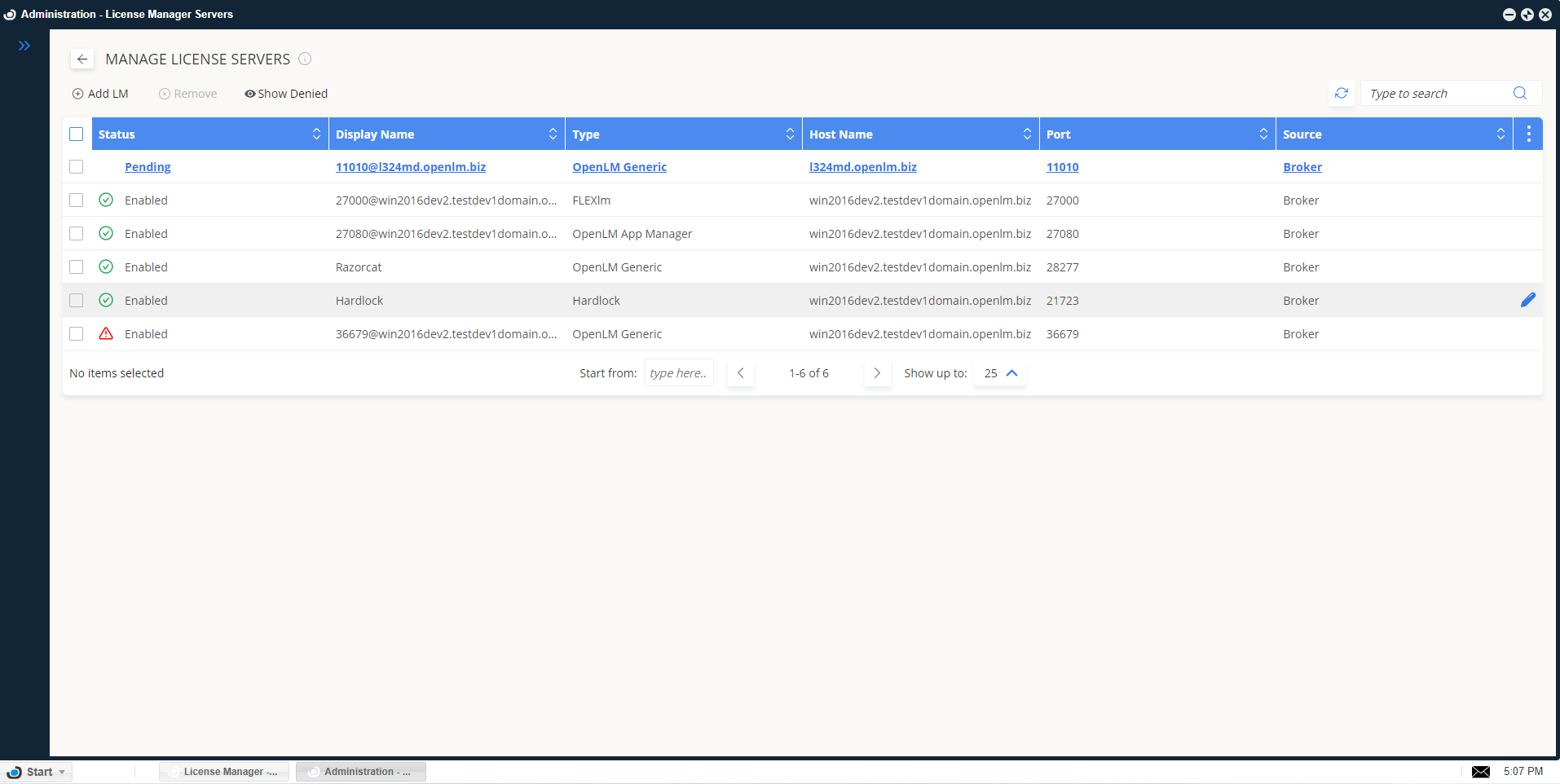
- Double-click the IPGLock entry (type will show as OpenLM Generic).
- Optionally rename the connection, leave type as OpenLM Generic, ensure Enabled is on, and click Approve.
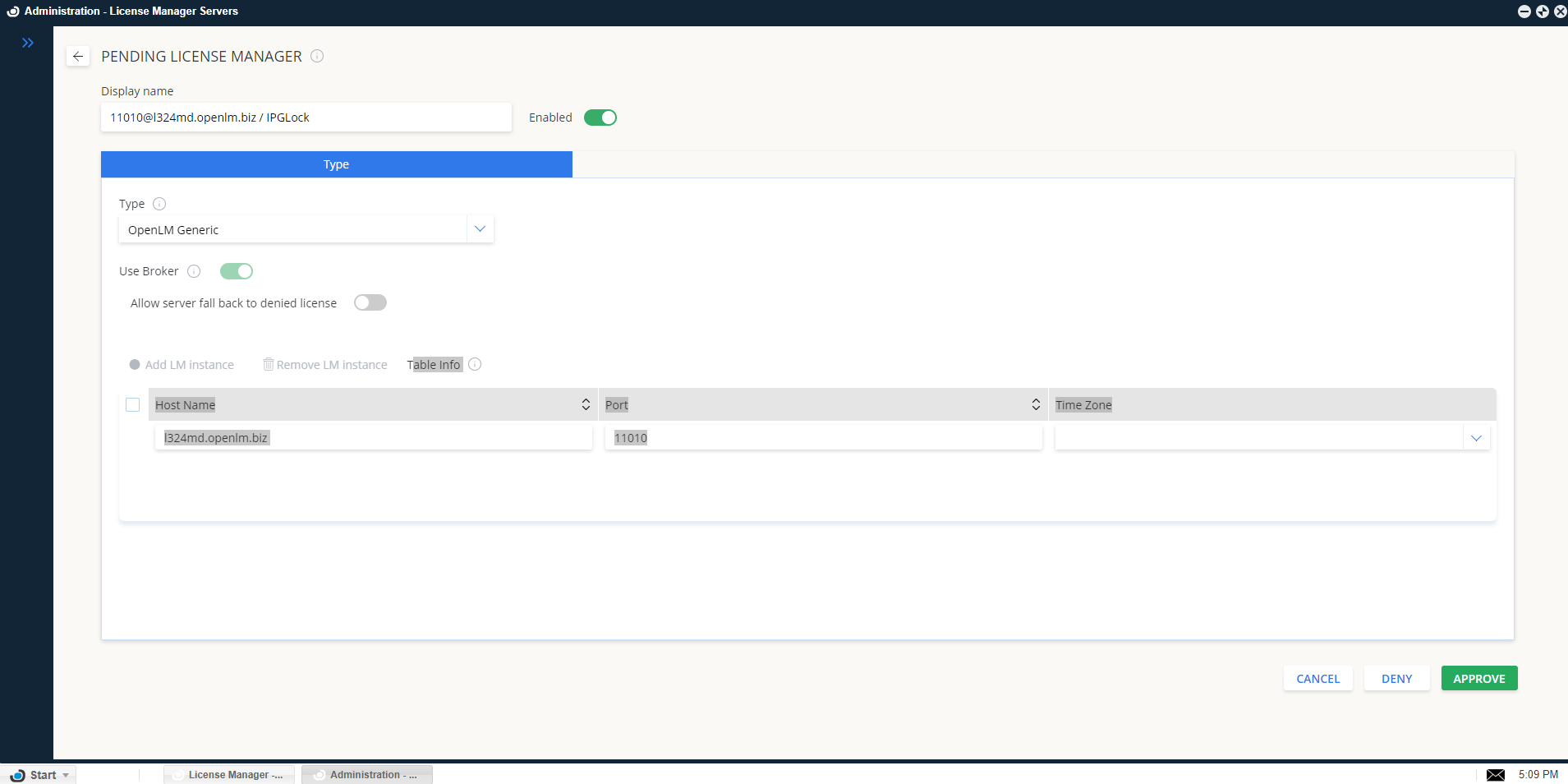
At this point, the IPGLock license manager is added and data will start appearing after a short delay. A green circle indicates an active connection.
Verify your configuration
- Open EasyAdmin in your browser.
- Go to Start → Widgets → License Servers.
- Confirm that IPGLock appears in the list with a green status circle.
note
It may take up to 3 minutes for a new connection to display as active.